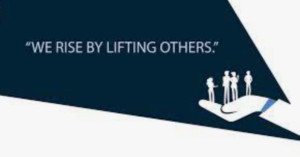“What we do for ourselves dies with us. What we do for others and the world remains and is immortal.”
– Albert Pike
It’s been almost two months since Father John retired, and in his absence I’ve been provided with an opportunity to better understand what it means to serve others. This “revelation” if you will, can be attributed to the service being rendered by people like Midge, Cliff, Vicki, Ellen, Terri, David and so many others members of my Church who have pulled together and continue to volunteer their time and efforts to assure that our ministries continue and the needs of our congregation and community are met. Some might say they are dedicated, but I see them in a different way; as dedicated servant leaders following in the footsteps of our Church’s founder.
Servant leadership occurs when the leader’s main goal and responsibility is focused on the provision of service to others. It’s never about them personally or professionally, rather, the servant leader’s focus is the growth of others or the greater good; be that of the organization, the community or mankind. As such, the servant leader’s drive comes from a genuine motivation to do good, to hold themself accountable to a higher standard and create an environment that fosters individual and organizational goal attainment. That is accomplished through the use of a simple question, “What do you need?”
Those four words are powerful. They empower others. They can serve to encourage the articulation of great ideas or give voice to concerns about obstacles being faced. Servant leaders break down barriers, they communicate, communicate, communicate and they encourage others to think differently. By living the idea of service to others, they create an environment that not only enables everyone to put forth their best effort, but simultaneously encourages others to wear the servant leader mantle.
History is filled with servant leaders, but it is in times of crisis that modeling servant leadership is critical, for it is in these hours that people look to their leaders to see how they should respond. It is imperative that they are witnesses to individuals who model attitudes and behaviors reflecting calmness, sharing, gratitude and compassion.
Over the past few months I feel blessed to be surrounded by a group of people who continually put others first and always ask, “What do you need?” That being said, let’s think about how we can all continue to show up as servant leaders and meet the needs of others, while we live, lead and contribute to a better world.
Embrace Servant Leadership
Embrace the Challenge

